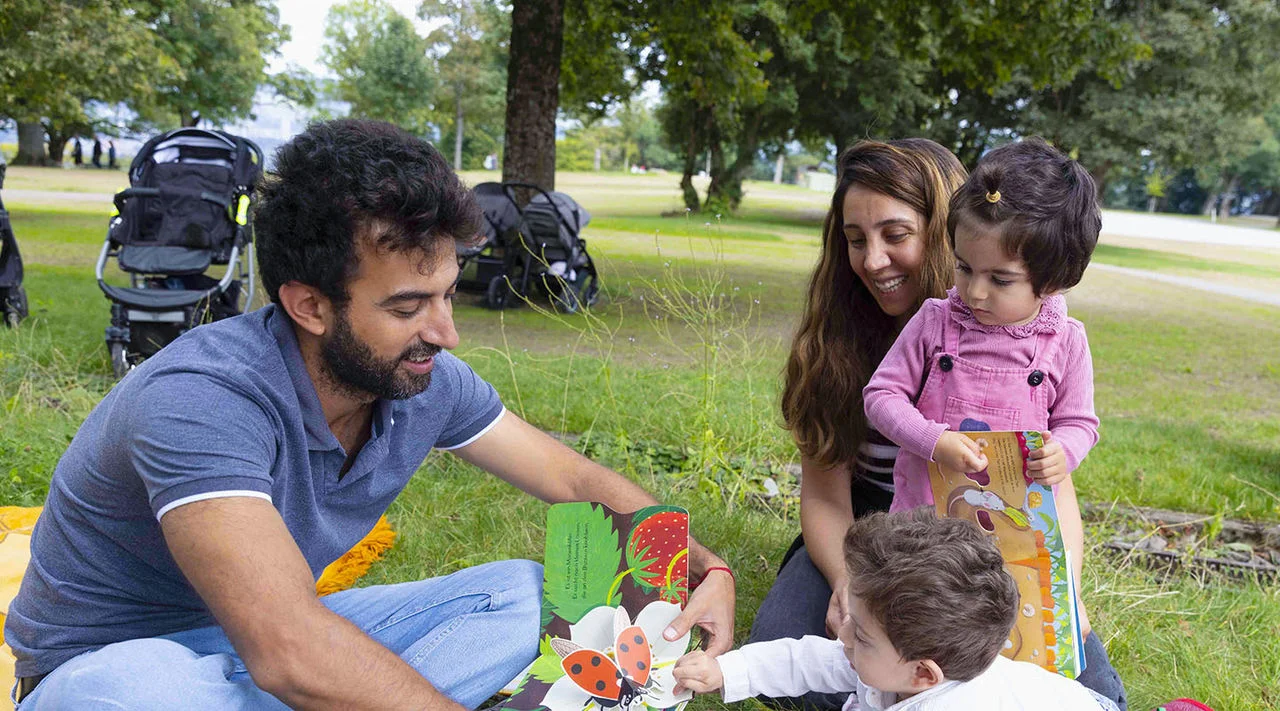The Human Safety Net
Don’t just read, inspire!
Top tips from a reading animator on Swiss Reading Aloud Day.
Infants start developing a feel for language as soon as they are born. SIKJM reading animator Marlies Mertl explains how parents can support their children’s language skills by reading aloud, thus laying an ideal foundation for later development.
Ms Mertl, what exactly does a reading animator do?
My work is focussed on two areas. First, I work directly with children and tell them stories in dialect, which I enrich with songs, rhymes or games. I don’t just read out loud, but make it an all-engaging experience. I introduce young children to books in an enjoyable way. When they learn to read later in school, they remember that books are beautiful and exciting.
And what about the second area?
I pass on my knowledge and experience to adults who work with children such as kindergarten, playgroup or library staff. I try to give them a sense of how you can create a literary environment in which even the youngest children feel comfortable. It’s inspiring to watch children’s faces light up when they really get into a story.
Why is reading aloud important for toddlers’ development?
The mere fact that two, three, or four people take a break from everyday life and cuddle up on the bed or sofa conveys a sense of security, emotional affection and safety. Listening to someone read and tell a story helps even the youngest kids to unconsciously learn a lot about the rhythm and melody of language or the structure of a story.
At what age should you start reading to your kids?
Right from birth. Reading aloud isn’t just a technical skill. Even a baby in a sling can sense the melody of language when their mother or father tells a story. Toddlers begin to develop an interest in books at around six months, even if they’re still primarily a toy to be chewed on. By the way, you shouldn't stop reading to your kids once they can read by themselves: you should enjoy this precious time together with older children too.
Do you have any tips for making reading aloud an experience?
- Reading aloud is a conscious break from everyday life. Immerse yourself fully in the situation without distractions such as your mobile phone.
- Don’t just read, inspire! Mix in a rhyme or a song – whatever comes to mind.
- Questions should be allowed and encouraged. This can lead to exciting exchanges. For example, you can ask a counter-question: “What would you have done in this situation?
- Go to the library together and let your child choose the book for a change.
- And don’t object if your child always wants to hear the same story: kids love repetition!
How can I support my child’s language skills?
Studies show that children who are read to at an early age find it easier to learn to read and write later on. It’s easy to support your child’s language skills, as this happens automatically in everyday life. Talk to them and explain things while playing, cooking or taking a walk. You can’t go wrong if you engage in dialogue with your child. You should shower your child with words!
Swiss Reading Aloud Day takes place on 21 May. Why is it important?
It raises the relevance of reading aloud in institutions, families and schools by attracting media attention. That’s also thanks to the celebrity sponsors: having mayors, football players or TV presenters read aloud creates important role models.

Marlies Mertl
SIKJM reading animator

 Contact
Contact
 Find an agency
Find an agency








 Close
Close




